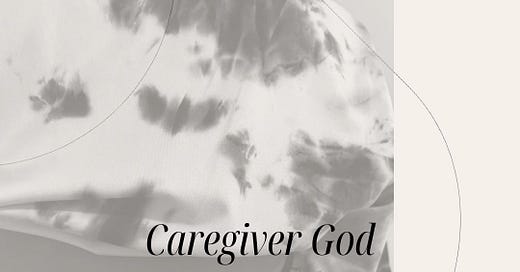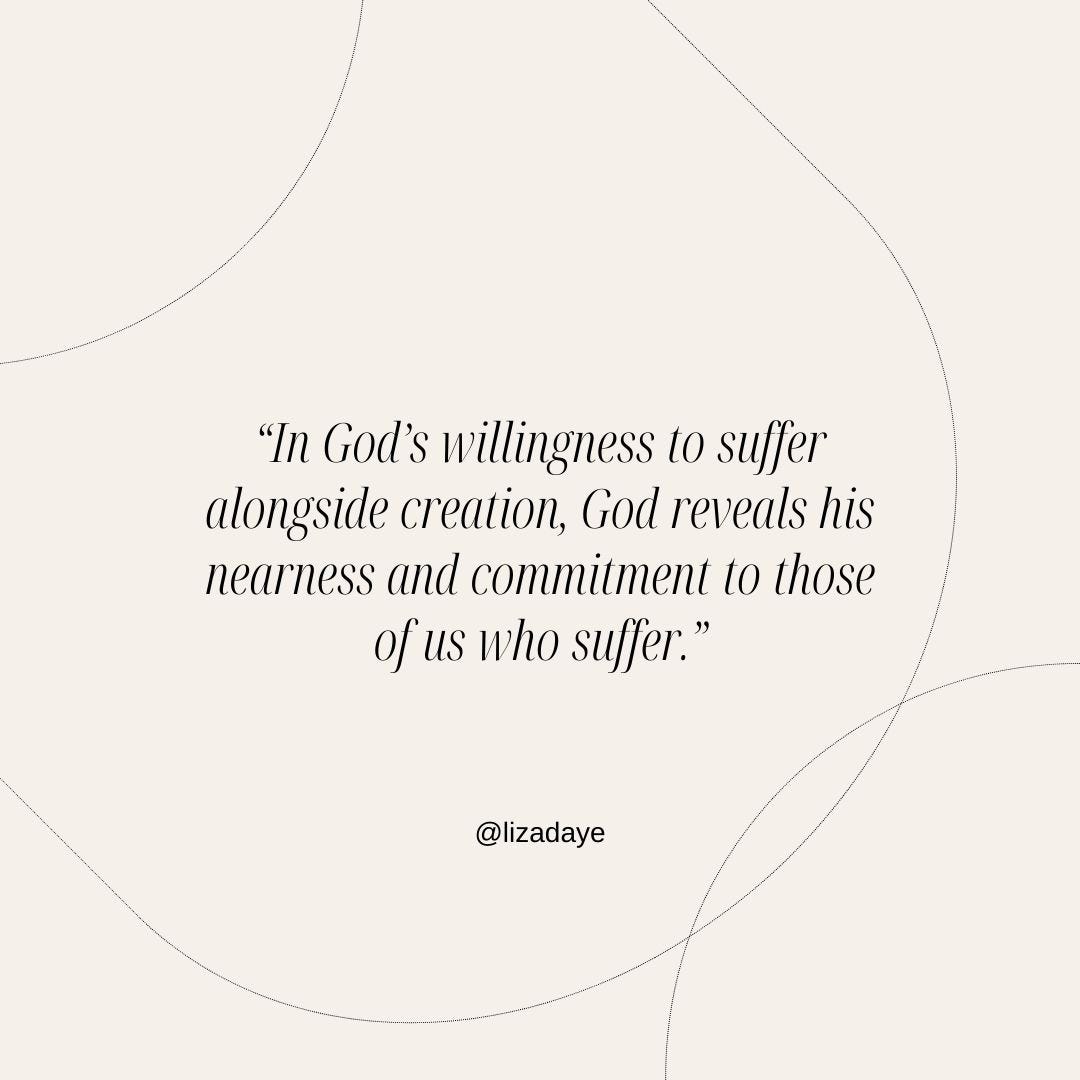First, I want to thank my friends here for giving me a little space to care for my child after her most recent surgery. It was as successful as we could have hoped, and we’re grateful for the way our friends have come alongside us and encouraged us in this season of healing and recovery. And while we’re all still basking in the resurrection rhythms of Eastertide, I want to take a moment to think through some of the implications for a deeply incarnational theology, particularly for those of us who wrestle with the regular realities of disability and caregiving.
At one point I tried to count the number of doctors and nurses caring for my daughter during her most recent hospital stay, but I lost track. Upwards of a dozen on the surgery floor, another dozen when she was in the PICU, and another half a dozen over on the neurosurgery recovery floor- each with a different specialty and focus, but all of them had the same goal, her healing. They worked together, they partnered. And because of all of the people caring for and simultaneously caring for our family, our load was much easier to bear than it has been in the past.
You see, this time last year, we were also in the hospital, and I vividly remember working through my trinitarianism midterm for seminary in the chair next to my sleeping child, sobbing through exhaustion. Not because of the work itself- the work was actually a welcome distraction in a strange way. But in that moment, I felt like it took everything in my being to cling to God’s goodness. And as I found myself clinging and wondering and imagining and wrestling with what God was like in that moment, and begging for God’s closeness, I began to think about Christ’s body after the crucifixion. “What is God like when my child is in pain?” led to “What was the Father like when Jesus was in pain?”
Three days after her surgeries, the scar was usually still bloody. Six weeks later it was still purple and red. There was a loss of strength. Lingering soreness. And I struggled then to reconcile her reality with art and conceptualizations that depict Jesus after the resurrection with sparkling clean nail-scarred hands. And in that moment of friction, I wondered “exactly how human was he?”
And it’s strange, this relationship that we humans have with pain and the way we crave to imagine a God that sheds pain instantaneously just because he can… because that’s what we would do. I wouldn’t think twice about removing my own children’s pain. But in thinking about it, I realized that Jesus’ own bodily healing wasn’t magical, instantaneous, or individual. Because God is triune, and because Jesus is fully God and fully human, any pain Christ felt would have been felt by the fullness of God. And just as Jesus sacrificed his broken body, the Father and the Holy Spirit sacrificed to care for and come alongside the third person of the trinity in his own time of weakness. They didn’t abandon him. They couldn’t. They wouldn’t.
This ancient doctrine that I’m obsessed with, the doctrine of perichoresis, has wide reaching implications for all aspects of theology, but none more important than the relationship between the incarnation and the resurrection. Ontologically, if God is always totally himself, the Father, Son, and Spirit never cease to exist as the fullness of God, together.
Because God is perichoretic, the Father, Son, & Spirit are eternally interdependent and interconnected. Even in death. Even in resurrection. This means Jesus didn’t heal alone. Noone heals alone. Jesus’ healing was vibrant and participatory. It was active. And the roles of the Father and Spirit in Jesus’ healing were active too. Or in other words, Jesus’ healing and recovery likely included divine caregiving. Caring for Christ’s wounds wouldn’t have been an individual or “separate” act - but Jesus’ healing and recovery post-crucifixion would have included and involved the whole trinity.
So, I can’t help but wonder…. If Jesus became human so that he could become one of us (with us, for us now and forever), then the incarnation is proof that God’s solidarity with creation was a priority. And if sin and suffering broke Christ’s body to the point of death, then I can’t imagine that the ongoing suffering throughout creation doesn’t continually break God’s heart. I can’t imagine an unaffected God. Thus, I simply can’t imagine a God that runs from pain like we do.
Our God crossed heaven and earth to save the world through the incarnation. This was the means of God’s plan to save the world from the beginning. And if it is our pain and vulnerability that makes us human, and Jesus is still fully God and fully human (and he is!), then fidelity to orthodoxy cannot gift me a God that feels no pain. And if bearing one another’s burdens fulfills the law of Christ, then I have to assume that The Father and Spirit in some way, bore the burdens of the suffering son, in the same way that they all still suffer with a suffering creation.
Imagining our Creator as a caregiver and caretaker reminds us that while God is most concerned with healing our sin-sickness for good, in the kingdom of heaven that is both now and not yet, how we’re healing right now matters to God. God isn’t dismissive of our pain. He joins us in the midst of it.
In God’s willingness to suffer alongside creation, God reveals his nearness and commitment to us who suffer.
In God's willingness to participate in suffering through the lens of perichoresis, God reveals that there’s no length he won’t go to for us.
In our church, we often sing of the reckless love of God during our worship time. We proclaim that there’s no mountain God won’t climb up and there isn’t a shadow God wouldn’t light up to run after us with his overwhelming reckless love. I’d argue that there’s no degree of suffering God wouldn’t endure, no amount of pain he’d skip.
And for those of us who regularly navigate the complexities of caregiving and disability, there’s hope in this truth that our God isn’t in a rush to avoid the things that still plague us, but instead is intimately acquainted with our pain.
Because of the incarnation, God’s solidarity with sufferers isn’t only how he saves us from sin and suffering, but solidarity is precisely what God is saving us for. Togetherness now and forever is the whole goal, and the whole prize.
And the same God that suffers alongside us, hopes alongside us. Not because he can’t wave a magic wand and eliminate the pain- but because God refuses to do so without us.
As always, thanks for being here and supporting my work. It’s going to be an exciting month! I’m looking forward to meeting some of y’all in Grand Rapids at the Festival of Faith and Writing and would love to connect if you’re going to be there. Additionally, feel free to check out the most recent episodes of Kate Boyd’s Untidy Faith Podcast where I’m guest co-hosting season seven with both her and our friend, Pastor Jon Pyle. And I can’t wait for y’all to read a very special piece that I authored for (In)Courage at the end of the month.
The best way to support my writing right now is to subscribe here.
Feel free to keep the conversation going in the comments.
Blessings for the week ahead.
Liz








